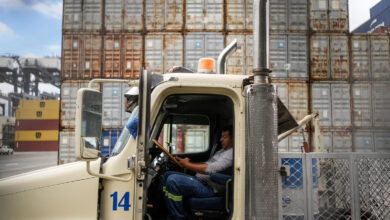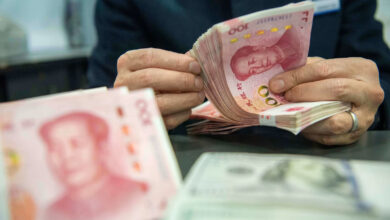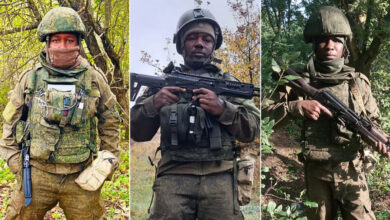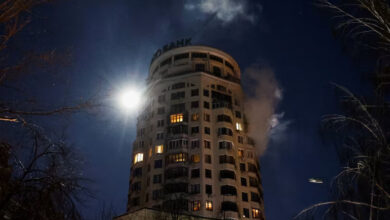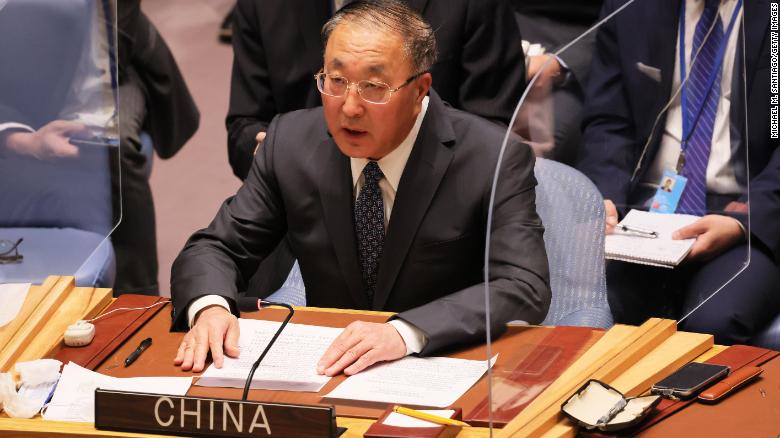
(CNN) – Shocking images showing the bodies of civilians scattered across the streets of Bucha, a suburb of the Ukrainian capital of Kyiv, have sparked global horror in recent days and raised the urgency of ongoing investigations into alleged Russian war crimes. But a starkly different narrative is playing out on China’s state-run media.
There, domestic media reports on the civilian casualties in Bucha have been quick to emphasize the Russian rebuttal, with two prominent televised reports from national broadcaster CCTV this week highlighting unsubstantiated claims from Moscow that the situation was staged after Russian forces withdrew from the area.
In one report, a caption citing Russia with the words “Ukrainians directed a good show,” flashes over heavily blurred footage from the Ukrainian town.
There is no evidence to suggest this is the case. Satellite images suggest some bodies had been there since at least March 18, while eyewitnesses have said the carnage began weeks ago.
Separately, the United Nations Office of the High Commissioner for Human Rights on Tuesday said the shocking images from Bucha showed “all the signs” that civilians were “directly targeted and directly killed.” On Tuesday, UN chief António Guterres added to growing international calls for a war crimes investigation into the killing of civilians in the town.
The allegations of war crimes raise the stakes for China’s position. Beijing’s apparent boosting of Russian propaganda is consistent with its stance since the beginning of the invasion, as it has refused to condemn Russia — at home or in its diplomacy — even as the civilian death toll grows.
Instead, Beijing has sought to portray itself as a neutral actor, calling for peace while blaming the situation on the United States.
This was on show in an editorial published in the nationalist tabloid the Global Times on Wednesday, which appeared to question the veracity of what it called, in quotes, the “Bucha incident” and absolve Russia of responsibility.
“It is regrettable that after the exposure of the ‘Bucha incident,’ the US, the initiator of the Ukraine crisis, has not shown any signs of urging peace and promoting talks, but is ready to exacerbate the Russia-Ukraine tensions,” the editorial said.
“No matter how the ‘Bucha incident’ took place, no one can deny at least one thing: War itself is the main culprit of the humanitarian disaster,” it added.
A common foe
Rising tensions with the US have driven Moscow and Beijing closer in recent years, with Russian President Vladimir Putin and Chinese President Xi Jinping declaring their countries’ partnership had “no limits” just weeks before Russia’s invasion.
Since Russia’s invasion, Beijing has come under considerable pressure to decry Russia’s actions and join countries around the world in imposing sanctions. Chinese officials have instead refused to use the term invasion to describe Russia’s actions, and have repeatedly said they will cut their own path when it comes to their response.
China’s promotion of Russian disinformation indicates where its loyalties lie
At a United Nations Security Council special session on Tuesday, Chinese Ambassador Zhang Jun acknowledged that the images of civilian deaths in Bucha were “deeply disturbing,” but when it came to attributing blame for the situation he urged “all sides” to “exercise restraint and avoid unfounded accusations.”
“The relevant circumstances and specific causes of the incident should be verified and established. Any accusations should be based on facts,” Zhang said.
Similar comments were made at a regular briefing on Wednesday by Foreign Ministry Spokesperson Wang Wenbin, who said “humanitarian issues should not be politicized.”
“All parties should exercise restraint and avoid groundless accusations” before fact-finding was concluded, Wang said, adding that China “is willing to continue to work together with the international community to avoid any harm coming to civilians.”
But at home, China has been broadcasting a more pointed message, one that ties into a longer history of Russian and Chinese state media reinforcing each other’s narratives — on issues such as the treatment of Russian dissidents, Hong Kong pro-democracy protests, and the origins of Covid-19 — as they seek to refute the characterizations of Western officials and media.
In an example of such overlap on Tuesday, state agency China News Service ran a post on the popular Twitter-like social media platform Weibo with the hashtag, “Russia shows the video to prove that the Bucha incident is staged” referencing a report from a Russian state news agency.
But even as China amplifies Russian rhetoric in its reporting at home, some public shows of skepticism can be seen, even in China’s highly moderated social media platforms.
In a recent example, a widely followed military blogger wrote on Sunday that Ukrainians were responsible for a “massacre” of civilians — but multiple users in the comments below suggested the details of the post were wrong.

